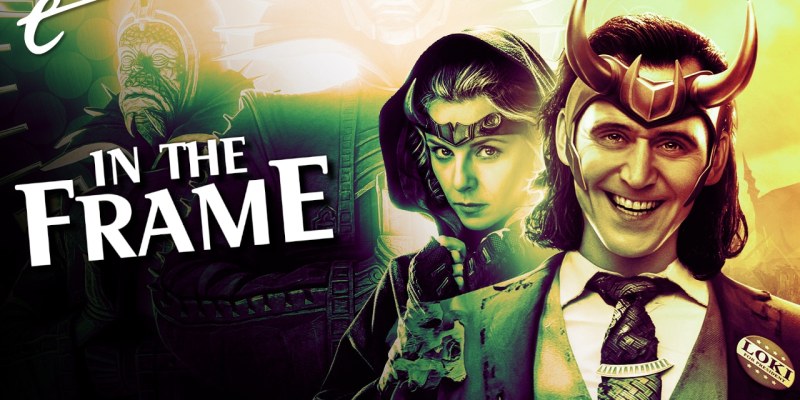Like its title character, Loki had a lot of potential. It’s a shame so much of it ended up unrealized in the Loki season finale.
The six-episode series is built around Loki (Tom Hiddleston), one of the breakout characters of the Marvel Cinematic Universe. From a character perspective, Loki is about the title character trying to figure out his place in the grand scheme of things. In the opening episode, a version of Loki who escaped following the events of The Avengers is confronted with the inevitability of his own defeat and failure, culminating in his death at the hands of Thanos (Josh Brolin) in Avengers: Infinity War.
“You were born to cause pain and suffering and death,” summarizes Time Variance Authority (TVA) agent Mobius (Owen Wilson) as he walks Loki through his history. “That’s how it is, that’s how it was, that’s how it will be. All so that others can achieve their best versions of themselves.” The central conflict of the show is the question of whether or not Loki can change and what the best possible version of Loki might look like. Can Loki take charge of his own story?
Over the course of Loki, the character is repeatedly confronted with alternate versions of himself, including a bitter variant named Sylvie (Sophia Di Martino) who dedicated her life to taking down the TVA that characterized her as a “variant” and tried to erase her existence. In the penultimate episode, “Journey into Mystery,” Loki wanders a wasteland populated by alternate versions of himself. Oscar nominee Richard E. Grant plays a version who survived Thanos in Infinity War.
Loki’s arc in the show is towards proving that he can change and that he can make active choices about whom he wants to be. “You could be whoever, whatever you wanna be, even someone good,” Mobius tells Loki in the fourth episode. “I mean, just in case anyone ever told you different.” This is a basic and straightforward character arc, but it is also an effective one. After all, most stories are about characters asserting their own agency and demonstrating their previously latent potential.

It’s arguably a much clearer arc than the central characters in the previous two streaming shows enjoyed. In WandaVision, Wanda Maximoff (Elizabeth Olsen) tortured and enslaved an entire town to work through her grief over losing Vision (Paul Bettany), only for the finale to insist that her victims will “never know what (she) sacrificed for them.” The Falcon and the Winter Soldier spent so much time arguing over what Sam Wilson (Anthony Mackie) didn’t stand for that it struggled to articulate what he believed.
However, the themes run deeper than that. Loki is in part a meta meditation on what it means to be a supporting character trapped in somebody else’s narrative. In both the season premiere and finale, Loki is confronted with a literal script of his dialogue suggesting that he is just one of “the clowns (who) are playing their parts to perfection.” What is it like to be a fictional character trapped in the role of the villain or the plucky comic relief in stories built around other protagonists?
It is clever and self-aware, evolving into a criticism of the limitations of a certain style of shared universe storytelling favored by Marvel Studios. When Sylvie bombs “the Sacred Timeline,” she is attacking “the canon,” the version of shared continuity that believes that there can only be one true version of Loki and that all other takes are irrelevant. It is an attack on the gatekeepers who police that canon as a way of asserting power. All stories are valid, even deviations from the sacred text.
Of course, this is more than just a clever postmodernist interrogation of the idea of continuity. It also plays as a metaphor for the same ideas simmering through The Falcon and the Winter Soldier about the centering and the application of power. Loki reveals early on that the TVA was founded in the wake of a Multiversal War. The final episode reveals that the TVA was created by the victor of the conflict, He Who Remains (Jonathan Majors), imposing his will on time itself.

In Loki, history is literally written by the victor. The TVA operates with complete impunity, answering to nobody. The institution is built on lies. The foundational mythology of the TVA, the notion of the benign Time-Keepers, is a façade to keep loyal employees like Mobius enthralled. In reality, the TVA is populated by brainwashed variants conditioned to oppress other variants.
With its gigantic statues and all the talk of “belief,” the TVA is a barbed metaphor for religion. Agents believe that the Time-Keepers are “transforming” the “end of time” into “utopia” in the way that most religions believe in life after death. This too is a lie. “Journey into Mystery” reveals that nothing exists at the end of time beyond a howling void. However, Loki also presents the TVA as any powerful and unchecked institution that operates without oversight or due process.
Ultimately, Loki suggests that the TVA is motivated by nothing more than self-interest. “When we’re out there fighting for the fate of the Sacred Timeline we’re also fighting for this,” Judge Ravonna Renslayer (Gugu Mbatha-Raw) tells Mobius. “For us.” Ravonna has secured a spacious and luxurious office for herself, populated with trinkets and relics. This conversation gets an ironic echo in the finale, as an embittered Ravonna tells Mobius, “Only one person gets free will. The one in charge.”
At one point, Sylvie gets to ask Ravonna why she was targeted for “pruning” by the TVA. What law did she break? “Must have been important,” Sylvie muses. “So, what was it?” Ravonna replies, “I don’t remember.” In reality, the pruned timelines and individuals are all sent to the end of time where they are fed into the gaping maw of the monstrous Alioth, the sentient cloud that guards the castle of He Who Remains. The beast must be fed. The system must be maintained.

Through the lens of Sylvie, Loki echoes Ursula Le Guin’s short story, “The Ones Who Walk Away from Omelas.” Le Guin imagined a utopian community built upon the suffering of an innocent child, inviting the reader to wonder whether paradise was worth such a price. Sylvie was identified as a “variant” as a child and charged with “crimes against the Sacred Timeline.” Any system that would murder a child like Sylvie without any good reason must be fundamentally broken and irreparable.
It’s not too hard to read Loki as a metaphor about an increasingly unsustainable status quo. The apocalypse is a recurring motif in Loki, with Sylvie hiding from the TVA in various end-of-the-world scenarios. There is no shortage of such events. “God, it’s just one damn thing after another, isn’t it?” sighs Mobius as he tries to narrow the list of possible crises. Loki understands the grim absurdity of a society trying to pretend that it is business as usual in the face of cataclysm.
Loki mirrors Thor: Ragnarok, a movie similarly preoccupied with the myths that powerful and oppressive civilizations tell themselves to justify their violence. In some ways, Loki can use its science fiction and fantasy framework to make arguments that The Falcon and the Winter Soldier never could, to articulate fears about a system that seems increasingly gamed to favor those who already hold power and to speak to growing disillusionment in the way the world works.
Unfortunately, the season finale of Loki remained too true to the spirit of its character. The reveal that He Who Remains was controlling the TVA led to an extended exposition dump and a climax that found Sylvie betraying Loki, but it also shifted the narrative focus away from the most distinguishing aspects of the series to that point. There was surprisingly little payoff. Mobius didn’t even get to ride a jet ski.

For all that Loki was about the protagonist asserting his own agency and proving that he could be the protagonist of his own story, Loki had very little to do in the finale. Early on, he declines to talk Sylvie out of kicking down a door. “It never made a difference,” he sighs, setting the tone of the episode. He then listens to He Who Remains monologue for about 20 minutes, before trying and failing to talk Sylvie out of killing He Who Remains. He fails spectacularly. He accomplishes nothing.
Loki doesn’t just betray its protagonist. It also betrays its themes. He Who Remains argues that his death will just lead to more chaos and an iteration of this same loop. The presence of a multiverse must inevitably lead to war. After Sylvie kills He Who Remains, Loki returns to the TVA to discover a gigantic statue of Kang the Conqueror replacing the Time-Keepers. The climax of Loki suggests that the resolution of this arc won’t be an embrace of the potential of a diverse and rich multiverse, but instead a restoration of a slightly different and contained “Sacred Timeline.”
More unsettlingly, He Who Remains argues that destroying the TVA must lead to something worse. “You may hate the dictator, but something far worse is gonna fill that void if you depose him,” he warns Sylvie. Loki intuitively believes him, repeating the warning to Sylvie. Seemingly, He Who Remains “may be a bastard, but he’s our bastard.” Then again, this is arguably in keeping with the general philosophy of the Marvel Cinematic Universe that treats power as an end unto itself.
The finale presents Sylvie’s murder of He Who Remains as a grave mistake and a monstrous act, one that may have broken the universe itself. However, it’s hard to imagine Sylvie had any alternative. In its closing episode, Loki seems to decide that perhaps the murder of an innocent child would be a small price to pay for the maintenance of the status quo. It’s a sharp left turn away from the more provocative ideas that drove the season to that point.
For a show about the God of Mischief, Loki was ultimately too terrified to break the rules.
